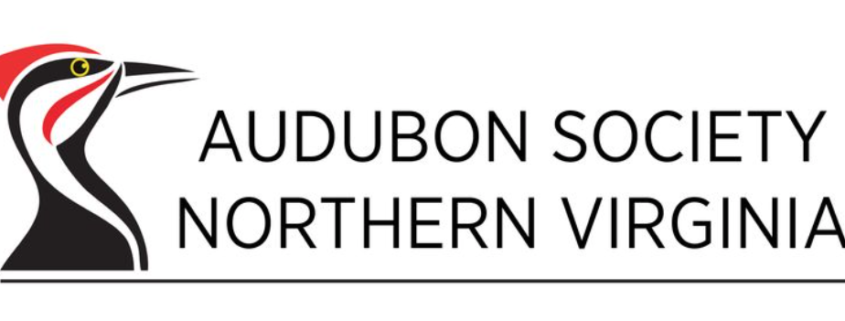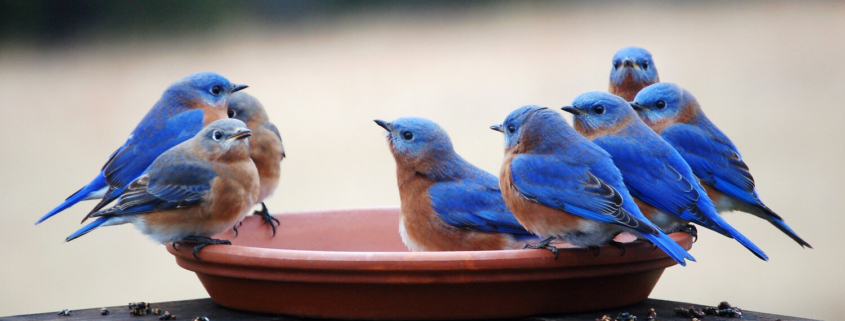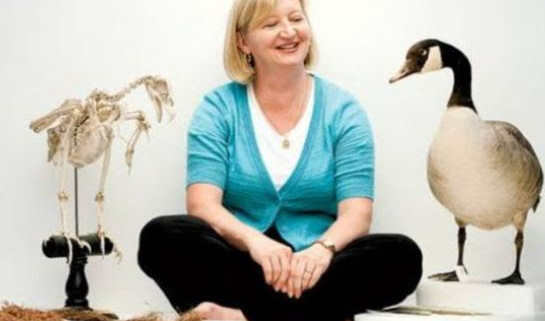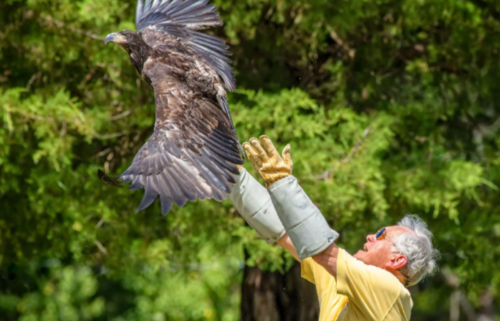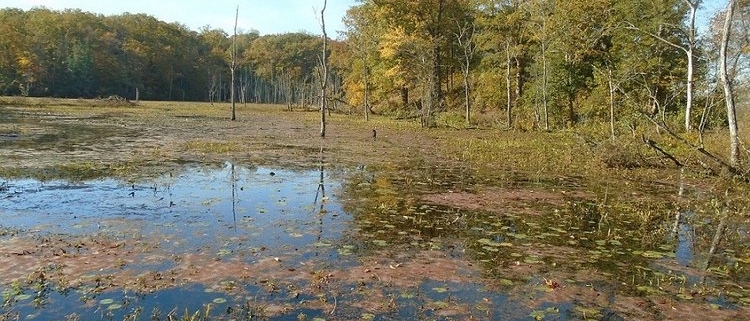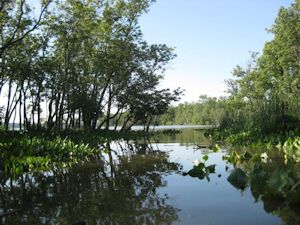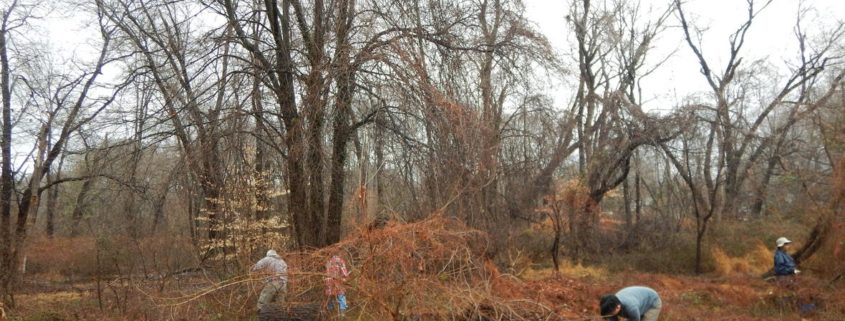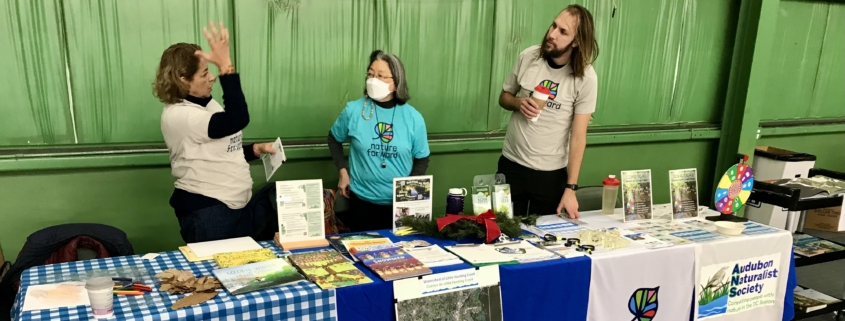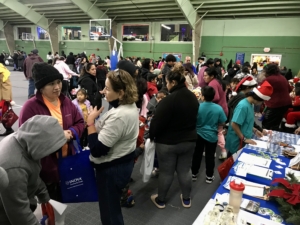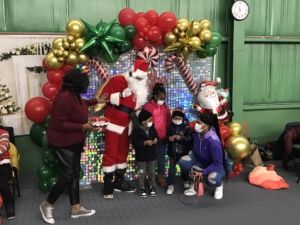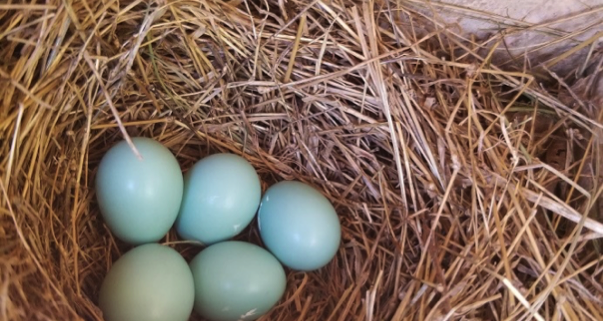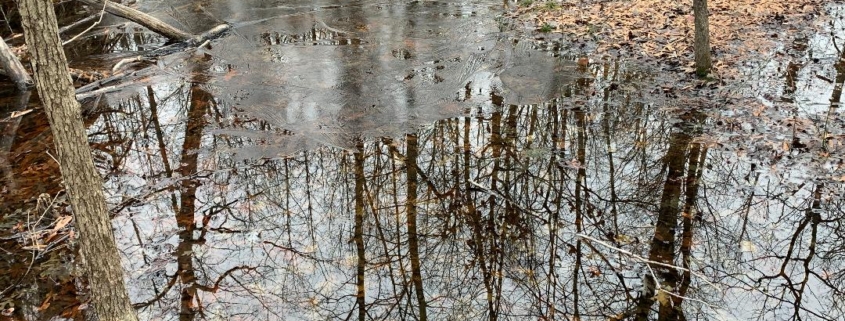Article and photos by FMN Stephen Tzikas
Feature photo: Eastern Bluebird nest, Box 3. May 1, 2021, Langley Fork Park.
Animals can have fairly skilled abilities, like that of a beaver building a dam, wasps constructing a hive, an octopus maintaining a garden to hide and reinforce its den entrance, or a bird building a nest. Birds can build nests in a variety of areas, urban or rural.
In 2021, I volunteered to become a bluebird monitor at the Langley Fork Park, in McLean, VA. It is one of the great variety of master naturalist programs available to volunteers. I was partial to it primarily because I had a pet parakeet as a child and knew how extremely intelligent and friendly these birds are. In 2022, I became the trail leader.
The Virginia Bluebird Society’s monitoring program offers a great opportunity to see new born birds very close. It’s not just the birds I find interesting, but also their nests. My favorite Bluebird monitoring document is found at this link from the North American Bluebird Society:
http://www.nabluebirdsociety.org/PDF/NABSFactsheetMonitoring.pdf
It is a useful document that discusses the identification of birds, eggs, and nests.
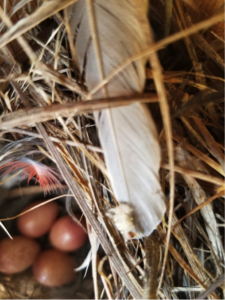
House Wren nest, Box 9, July 16, 2021, Langley Fork Park.
It’s all fascinating and perhaps the most interesting to me, as an engineer, is how nests are made. Each species has a unique nest. One might ask why and how? I haven’t found too much literature on why each type of bird builds a nest the way they do. So I will speculate a bit. At Langley Fork Park the Tree Swallows and Eastern Bluebirds are the most successful birds inhabiting the boxes, with the Tree Swallows having a slight edge. In 2021, we had one successful House Wren nesting event. While maintaining the bird boxes this Fall, I noticed a mouse built a nest in a birdbox surrounded by overground shrubs, which allowed it to reach the entrance.
Eastern Bluebirds build neat, cup shaped, woven nests of fine grass or pine needles. Tree Swallows
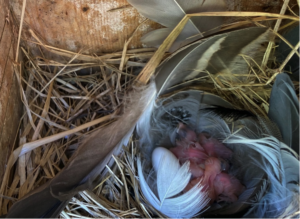
Tree Swallow nest, Box 5, May 21, 2022, Langley Fork Park.
build nests of coarser grass lined with feathers. Their cup is flatter than those of Eastern Bluebirds. House Wrens build haphazard nests of twigs, occasionally lined with feathers. House Wrens pile twigs creating a cavity in which they choose to nest, acting as a barrier between nest and entrance. House Wrens can be fierce competitors for nest sites, but generally speaking, the House Wren, as a species not as competitive as the Eastern Bluebird or Tree Swallow, has a security structure embedded as part of its nest.
Birds can also build unlined eggless “dummy nests” in nearby boxes to reduce competition. Dummy nests are also built by males, perhaps to offer the females some choices on her preferred location and once chosen, can be finalized.
From the Factsheet link I provided, the mouse has a messy nest. Mice usually make their nest from a variety of materials, such as grass, leaves, hair, feathers, shredded bark, moss, cotton, or shredded cloth. My son had a gerbil as a pet. I can say gerbils are not as intelligent as birds. Given this observation of their fellow rodent, and that mice are quite timid and scared, their nests are conducive to hiding. A mouse did not make a quiver when I opened a bluebird box weeks after the end of a season and found a mouse nest. Its nest was built to hide at all costs. Upon emptying the nest the mouse quickly ran away.
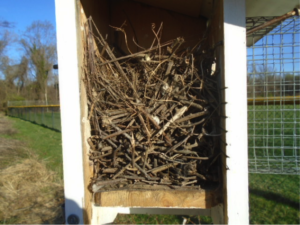
House Wren nest, Box 9, side view from 2021 season.
Eastern Bluebirds and Tree Swallows, who are competitive and successful, perhaps have the luxury to build a more comfortable nest given their abilities to defend their turf. The Eastern Bluebird, perhaps being particularly skilled, can find those extra soft grass blades and soft twigs, being quite comfortable for a refined nest for their hatchlings. The Tree Swallow, who includes some coarser twigs, can make up in their selection of cushy feathers to keep their young nestlings comfortable.
If birds were people, we might amusingly attribute the following characters to their work:
- Eastern Bluebirds – build with “engineering precision”
- Tree Swallows – build with warmth and comfort
- House Wrens – build with safety and security


